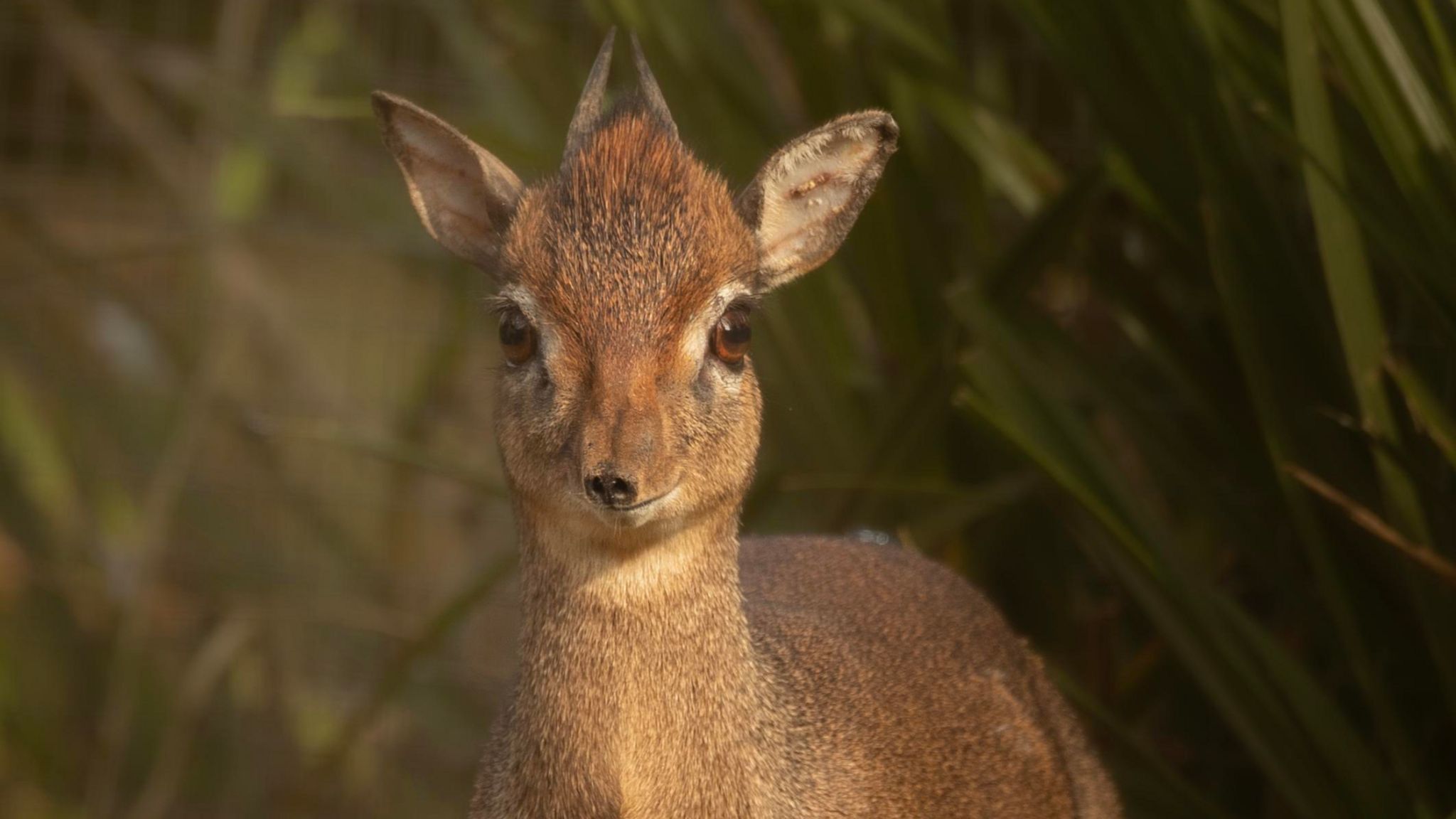Small antelopes 'settle in' at Devon zoo

Dartmoor Zoo said it was delighted to welcome three small antelopes to its site on 23 July from Colchester Zoo
- Published
A Devon zoo has welcomed three small antelopes to its site.
Dartmoor Zoo said three male Kirk's dik-diks, known as Madoqua kirkii, arrived from Colchester Zoo on 23 July.
The zoo said the trio, named Gregg, Munchkin and Pie, seemed in "good spirits" and were "settling into their new habitat well".
The new animals have moved into the African Aviary and have accompanied its current resident, Macaroni, a four-year-old dik-dik.
CEO David Gibson said the four of them together made an "amusing little group".
Dartmoor Zoo says the name ‘dik-dik’ originates from the antelope’s call
He said: "We are delighted to welcome a group of three male Kirk's dik-diks which are tiny little antelopes. They are about 40 to 60 cm (16-24in) tall.
Mr Gibson explained the small antelopes were native to Eastern Africa, particularly Kenya, and the zoo's latest additions were bred in the UK.
He said the three animals were aged between eight months to 18 months.
He described the animals as "very timid and nervous dwarf antelopes".
Mr Gibson also said how the animals would not usually live on their own in the wild.
When the zoo was given the chance to rehome three of Colchester Zoo's males, they were "delighted to say 'yes'" as they were looking for a "companion" for Macaroni.
'Adjustment period'
"The four of them together make a rather amusing little group. They all seem to be getting on very well at the moment," said Mr Gibson.
"We are delighted to have the group a non-breeding group of four male dik-diks. That fulfils the requirement for that species and we are not looking to acquire anymore."
The Zoo have asked its visitors to be mindful of the animal's sensitive nature and to "remain calm and considerate around the enclosure to ensure they have a pleasant adjustment period".
Senior Keeper Ashley Matthews said they would continue to monitor their behaviour and welfare during the adjustment period.
She added: "However, we’re thrilled to witness a lovely new bond being formed and can’t wait to continue watching it grow."
The zoo explained the name "dik-dik’ originates from the antelope’s call and when threatened they run in a zigzag formation, emitting whistling noises from their nose raising alarm to others in the area.
Follow BBC Devon on X (formerly Twitter), external, Facebook, external and Instagram, external. Send your story ideas to spotlight@bbc.co.uk, external.
- Published28 June
- Published2 July
- Published1 March